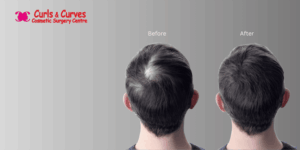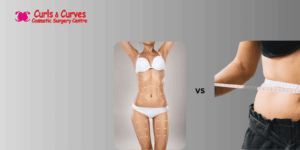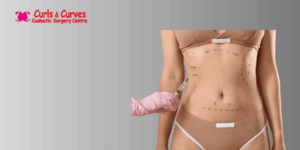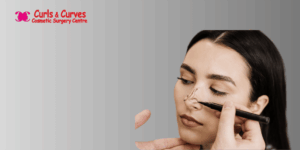With hair transplant procedures becoming increasingly popular, India now sees over 350,000 hair transplants performed yearly. While the surgery is an important step toward restoring hair, post-hair transplant care is just as crucial to achieving long-lasting and successful results. Proper hair transplant aftercare helps maintain the health of newly implanted grafts and minimises the risk of complications, ensuring you get the most out of your investment. This blog is here to provide the essential aftercare tips that can make all the difference in the outcome of your hair transplant.
Why is Post-Surgery Care Important?
Post-hair transplant care is critical for protecting the newly implanted grafts and preventing complications such as infections, scarring, or improper hair growth. The initial healing phase is especially sensitive, and proper hair transplant aftercare during this period significantly increases the chances of achieving the optimum results. By following recommended aftercare guidelines, you can make sure that your grafts remain intact, leading to healthier and more successful hair growth in the long term.
Essential Post-Surgery Care Tips
Post-hair transplant care is key to ensuring the success of your hair transplant in Bangalore and minimising the risk of complications. Following these crucial guidelines during the initial recovery period can protect your new grafts and promote healthy hair growth. Here’s what you need to focus on in the days and weeks following your procedure:
First Week Care
The first week after your hair transplant is perhaps the most delicate time for the healing process. During this period, it’s important to follow strict hair transplant aftercare instructions from your surgeon.
-
Sleeping Position: For the first few days, sleep with your head elevated at a 45-degree angle. This helps reduce swelling and minimises the risk of accidentally damaging the grafts.
-
Gentle Washing: Follow your doctor’s guidance on when and how to wash your scalp. Typically, you’ll be advised to wait a few days before gently rinsing the area with lukewarm water and a mild shampoo.
-
Avoid Touching the Grafts: One of the most crucial tips in post-hair transplant care is to avoid scratching or touching the newly implanted hair follicles. The grafts need time to settle, and any undue friction can dislodge them, compromising the success of the transplant.
Protecting the Grafts
In addition to the initial care, protecting your scalp from external factors is equally important. The new grafts are highly sensitive during the first few weeks, and exposure to harsh elements could hinder your healing process.
-
Sun Protection: Direct sunlight can harm the healing skin and lead to complications such as swelling and discolouration. It is advised to stay out of the sun for at least a few weeks after surgery. If going outside is unavoidable, wearing a loose-fitting hat is recommended to shield the scalp from harmful UV rays.
-
Following the Surgeon’s Instructions: Every hair transplant is unique, and your surgeon will provide specific hair transplant aftercare instructions tailored to your individual needs. These instructions may include when to resume activities such as exercising, how to care for the donor area, and whether any medications are needed to support the healing process. It’s vital to adhere strictly to these guidelines to ensure optimal results.
Long-Term Care for Hair Growth
Once the initial healing phase is over, your long-term post-hair transplant care will play a significant role in the overall success of your FUE hair transplant. Proper care can promote strong, healthy hair growth and help maintain your results for years.
-
Nutrition: A diet rich in minerals and vitamins aids hair health. Nutrients such as biotin, zinc, and iron contribute to healthy hair growth. Including foods rich in these elements, such as leafy greens, nuts, and eggs, can help strengthen your newly transplanted hair.
-
Regular Follow-Up Visits: Regular consultations with your surgeon are essential for monitoring your recovery progress. These visits allow your doctor to assess how well your scalp is healing, address any concerns you may have, and adjust your hair transplant aftercare routine if necessary. Follow-up visits can help identify any issues early on and provide additional treatments if needed.
-
Medications and Additional Treatments: Sometimes, your surgeon may recommend medications to prevent hair loss or stimulate new growth, such as finasteride or minoxidil. Additionally, treatments like Platelet-Rich Plasma (PRP) therapy can be beneficial in enhancing hair growth. PRP involves injecting your platelets into the scalp to promote tissue repair and hair regeneration, ensuring the long-term success of your transplant.
Final Words
Post-hair transplant care is an essential part of the hair transplant process and can greatly impact the outcome of your procedure. By following your surgeon’s instructions closely, avoiding potential pitfalls, and committing to long-term care, you can dramatically improve the likelihood of achieving the desired results. The success of your hair transplant doesn’t end in the operating room; it continues with the care you give your scalp in the weeks and months following the surgery.
Consult Curls & Curves for Personalised Post-Surgery Care and Exceptional Results
If you’re considering a hair transplant in Bangalore or require personalised post-hair transplant care, Curls & Curves is here to provide expert guidance at every step. Our team is dedicated to making sure your recovery is smooth and successful so you can achieve the best possible results. Don’t leave your hair transplant aftercare to chance – book a consultation today and take the first step toward fuller, healthier hair with confidence.





